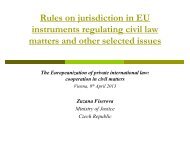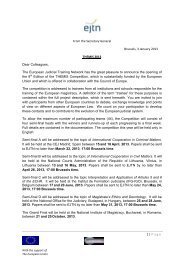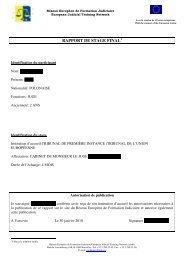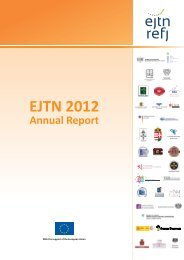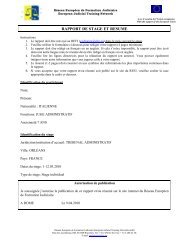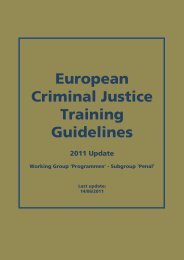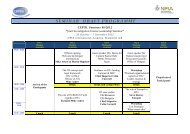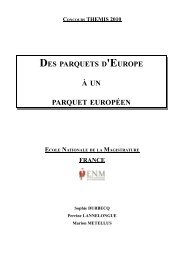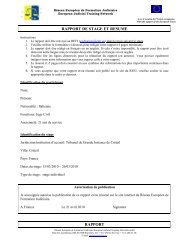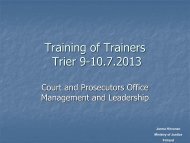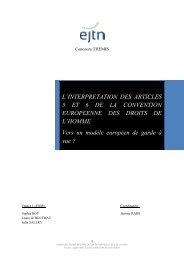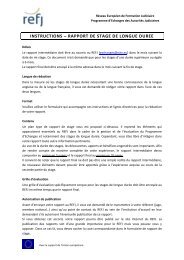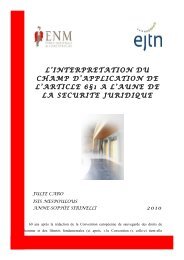Written paper Belgium_1.pdf - European Judicial Training Network
Written paper Belgium_1.pdf - European Judicial Training Network
Written paper Belgium_1.pdf - European Judicial Training Network
Create successful ePaper yourself
Turn your PDF publications into a flip-book with our unique Google optimized e-Paper software.
B. Introduction and contextualisation of the Belgian situation<br />
The ‘trias politica’ doctrine of Montesquieu is today an important keystone of most<br />
democratic states of law. As the word itself says, this doctrine is based on three independent<br />
powers each with their own special task.<br />
De legislature is responsible for lawmaking, the executive provides the execution of these<br />
laws and finally, the judiciary is responsible for monitoring compliance of the legislation.<br />
<strong>Belgium</strong> also has this system. As will appear, the division between the three powers is not<br />
always strictly.<br />
De legislature is exerted by the parliament. This parliament consists of two chambers, namely<br />
the Senate and the Chamber of Deputies. Next to the classical legislative task (submission and<br />
vote of bills), the parliament practices also some nearly judicial competences, like the<br />
eventual abrogation of the parliamentary immunity and setting parliamentary court of<br />
inquiry’s. This was for example the case with the ‘Dutroux’ affair, where by such a<br />
parliamentary court of inquiry a lot of dysfunctions within the judiciary were exposed.<br />
Another well-known example of a parliamentary court of inquiry is the one who inquires the<br />
so called ‘Fortisgate’. Both are mentioned infra. Furthermore the Chamber of Deputies is<br />
involved in the appointment and nomination of candidates for certain functions, namely<br />
counselors at the ‘Council of State’ and judges at the Constitutional Court.<br />
The executive, also called the Government, runs the country. It provides for the appliance and<br />
compliance of the legislation. These laws are implemented by means of Royal decrees. The<br />
government consists of ministers and secretaries of state who are appointed by the King. The<br />
executive also has a legislative right of initiative. This power can prepare legislation, that is<br />
discussed, adjusted and voted by parliament. Once a law is voted, it becomes proclaimed by<br />
the King.<br />
The judiciary controls and advises about legislation and possible contradictions to the<br />
Constitution, is an arbitrator between the different powers (both horizontal and vertical),<br />
decides on disputes and judges offenses and crimes. This power is executed by different<br />
courts and tribunals. The judiciary controls also the legality of the actions of the executive.<br />
9



